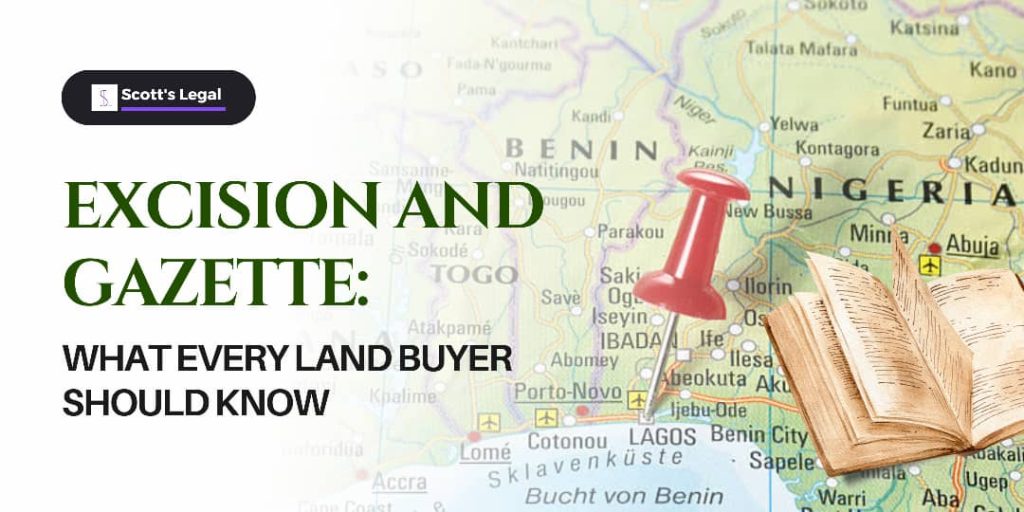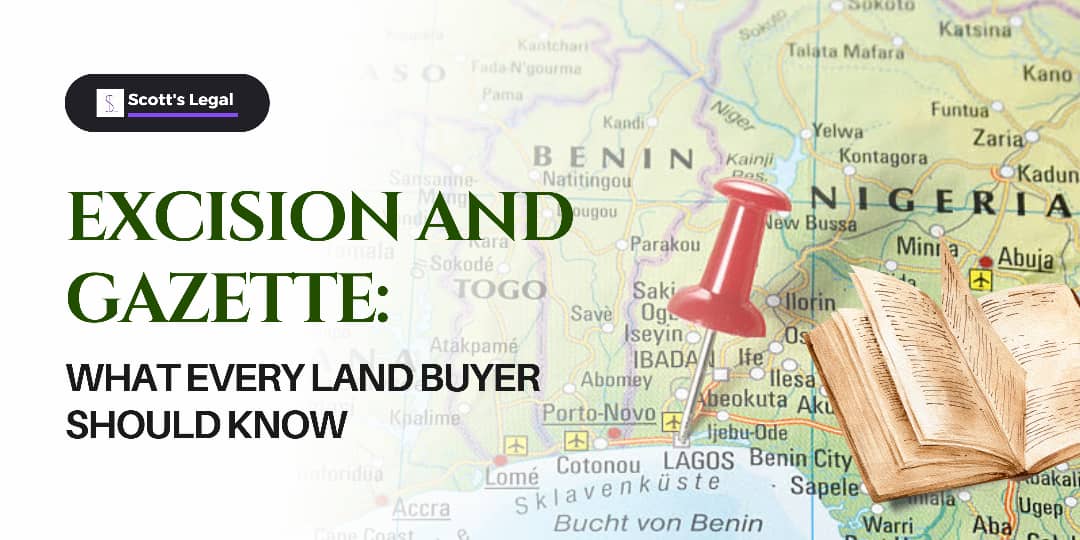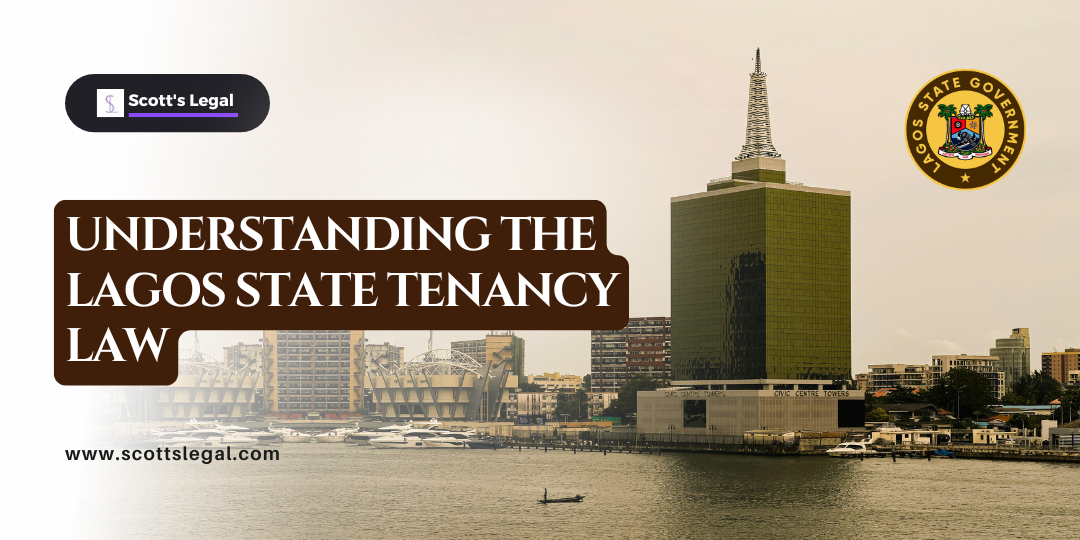When buying land in Nigeria, understanding excision and gazette is non-negotiable. These two legal concepts determine whether land is safe to buy and free from government acquisition.
Under the Land Use Act of 1978, all land within a state is vested in the Governor, who holds it in trust for the people. For investors and developers, knowing the importance of excision and gazette in Nigeria helps ensure their land purchase is both legal and secure.
Let’s delve into understanding each term one after the other.

What Is Excision?
Excision is a process through which the government formally releases a portion of acquired land back to its original owners. They are often indigenous families or communities.
When the government acquires large tracts of land for public use, excision ensures that the affected communities retain a portion of their ancestral land.
Key Facts About Excision
- Purpose: Excision recognizes the rights of indigenous landowners and prevents total loss of ancestral property.
- Legal Effect: Once land is excised, it is legally removed from government acquisition. The community or family can then sell or transfer ownership.
- Survey and Documentation: Proper surveyExcised land, with boundaries clearly defined in an official survey plan.
- Approval: The Governor’s approval is mandatory before the excision becomes valid. Once approved, it is recorded and published in a government Gazette.
Example:
Suppose the Lagos State Government acquires 500 hectares of land for public development, but later excises 50 hectares to the original community. That excised portion becomes free land that the community can lawfully sell to private individuals or investors.
Having understood the meaning of excision, let’s proceed to understand what a Gazette is.
What Is a Gazette?
A Gazette is an official government publication that documents all excised lands within a state. It serves as legal proof that a specific area of land has been released from government acquisition and is now recognized as freehold.
Key Facts About a Gazette
- Legal Documentation: A Gazette contains details such as the community name, survey plan number, coordinates, and size of the excised area.
- Proof of Ownership: It is the primary legal evidence that a parcel of land is no longer under government acquisition.
- Public Record: Gazettes are public documents that can be verified at the state’s Ministry of Lands or other relevant authorities.
In practical terms, if a plot of land is listed in the Lagos State Official Gazette, buyers can rest assured that the government no longer claims ownership over it.
Why Excision and Gazette Matter for Land Buyers
For real estate investors, the excision and gazette process provides clarity and protection in land transactions. Here’s why these documents are indispensable:
- Avoiding Government Acquisition: Lands not yet excised remain under government control and cannot be sold or developed legally.
- Legal Security: Buying excised land recorded in a Gazette ensures the property is safe from future government claims.
- Investor Confidence: A gazetted land increases buyer confidence, property value, and ease of obtaining a Certificate of Occupancy (C of O).
Without proper verification, buyers risk investing in land still classified as government acquisition, which can lead to demolition, loss of funds, or lengthy legal battles.
How to Verify Excision and Gazette Status
Before purchasing any property, verification is critical. Follow these steps to confirm whether land has been excised and gazetted:
- Request Documentation: Ask the seller or community representative for a copy of the excision approval or Gazette page.
- Visit the Ministry of Lands: Conduct a title search at the state’s Ministry of Lands to confirm the land’s excision status.
- Engage a Licensed Surveyor: Compare the survey plan of the land with the coordinates in the official Gazette to confirm alignment.
- Check for Encumbrances: Verify that the land is free from disputes, mortgages, or overlapping claims.
As an investor, land verification may seem tedious. But it’s far better than losing your investment to government reclamation or litigation later.
At this point, we would explore the signs every investor needs to pay attention to when dealing with excision and gazette.
Common Red Flags When Dealing with Excision and Gazette
Even with documentation, land transactions in Nigeria can be tricky. Here are warning signs every investor should watch out for:
- Unexcised Land: If land is not listed in any Gazette, it remains under acquisition. Avoid buying unless the excision’s approval is official.
- Fake Gazettes: Always confirm the authenticity of Gazette pages directly from the Ministry of Lands. Counterfeit documents are common in the market.
- Incomplete Excision: Some lands are still “under processing” for excision. Until officially gazetted, they remain government property.
Never rely solely on verbal assurances from sellers or agents. Always insist on documented evidence verified by professionals.
Here’s where the role of legal professionals comes in. The next subheading sheds light on this.
The Role of Legal and Professional Guidance
Navigating the excision and gazette verification process requires professional expertise. Investors should engage:
- A Property Lawyer: To review documentation, confirm the land’s legal standing, and draft or review purchase agreements.
- A Licensed Surveyor: To verify survey coordinates and confirm that the land in question falls within the gazetted area.
These experts help you avoid legal pitfalls, fraudulent transactions, and government encroachments
At this point, we would look at the relationship between excision, gazette, and certificate of occupancy.
Excision, Gazette, and the Certificate of Occupancy (C of O)
An excised and gazetted land is eligible for a Certificate of Occupancy (C of O), the ultimate legal title in Nigeria. Once a C of O is issued, the land becomes fully recognized under statutory law, increasing its market value and legal protection.
For example, an investor buying gazetted land in Lagos can subsequently apply for a C of O to formalize ownership and use it for purposes such as development, leasing, or collateral for financing.
Conclusion
Understanding excision and gazette in Nigeria is essential for anyone planning to buy land. These processes determine whether land is legally free for purchase and protect investors from acquiring property still under government control. Always verify the land’s status, engage professionals, and never take shortcuts when dealing with property documentation.
Other Articles On The Blog
- Taking A Sublease In Nigeria – Things To Note
- Certificate of Occupancy in Nigeria: Its Importance for Land Transactions
Navigating property laws in Nigeria can be complex, but the right legal guidance makes all the difference.
At Scotts Legal, we provide expert support in property acquisition, title investigation, registration, and property management, helping real estate investors make confident, compliant, and secure decisions.
For consultations and inquiries, send us a message – here.





